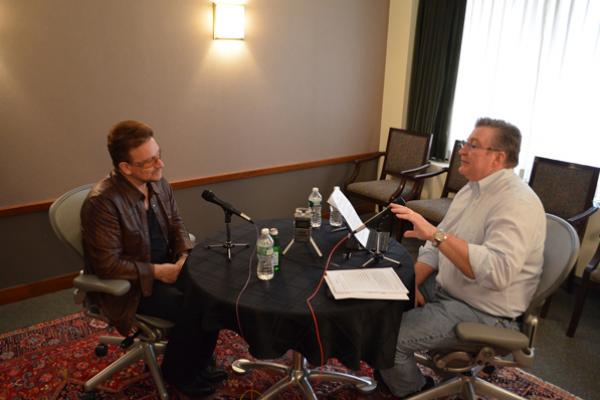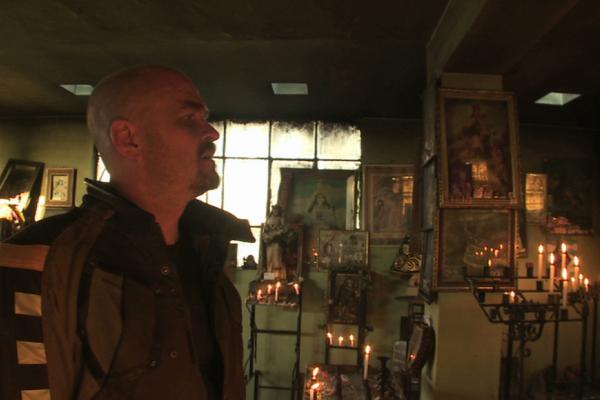This week the U.S. Supreme Court is expected to hand down decisions on two significant cases for same-sex marriage: United States v. Windsor (regarding the Defense of Marriage Act, or DOMA), and Hollingsworth v. Perry (regarding California’s Proposition 8).
At the Supreme Court this morning, an expectant crowd gathered hoping to catch the decisions firsthand. Most in attendance were visibly supportive of same-sex marriage, and many were cautiously optimistic that the Court would strike down DOMA, Proposition 8, or both.
See our slideshow and interviews with those gathered at the Supreme Court, below.
A bishop in Sicily has issued an unprecedented decree that says convicted mobsters will be denied a church funeral.
The measure was announced on Saturday by Bishop Antonino Raspanti, during a meeting with Italy’s justice minister, Anna Maria Cancellieri.
Churches in the Diocese of Acireale will refuse to celebrate funerals for mobsters who have been convicted with a final sentence in Italy’s three-tier court system, and who have shown no sign of repentance before death, according to the decree.
The throngs of demonstrators who flock to the grassy knoll outside the North Carolina Statehouse each Monday know the drill.
They listen to a fiery speech denouncing the Republican majority’s legislative actions. They sing freedom songs and chant civil rights slogans. Then they march two by two into the legislative building to be handcuffed by police and arrested for failing to obey orders to disperse.
Leading them in this weekly rite of nonviolent civil disobedience is the Rev. William J. Barber II, president of the state’s NAACP chapter. Since assuming the state presidency eight years ago, he has waged numerous battles challenging local and state governments to extend educational opportunities, broaden the voting base, provide health care, and more generally lift up the poor.
Nine foreign climbers in the Himalayas in a remote part of northern Pakistan were killed Saturday night by a unit of the Pakistani Taliban. A Taliban spokesman claimed the killings were by a new unit set up to send a message against drone strikes by attacking foreigners. Al Jazeera reported:
“Taliban spokesman Ehsanullah Ehsan telephoned the AFP news agency to say that the killings were intended to avenge the death of the second in command of the Tehreek-e-Taliban (TTP) in a US drone strike late last month.
"We did it and we claim responsibility for this attack," Ehsan said in the call from an undisclosed location.
"One of our factions, Junood ul-Hifsa, did it. It is to avenge the killing of Maulvi Wali ur-Rehman," he said.
"We want to convey to the world that this is our reply to US drone attacks," he added.”
Read more here.
Dozens of peace activists walked into Des Moines, Iowa, yesterday, following a nearly 200-mile march from Rock Island, Ill. The march ended with a rally at the gate of the Iowa Air National Guard's 132nd Fighter Wing, where drone pilots will soon be trained. The Des Moines Register reported:
“Dozens of protesters walked during each leg of the march, which was organized by the Chicago-based Voices for Creative Nonviolence. The group covered about 15 miles a day, camping and staying in host houses along the way.
“Organizers said the march was also to protest the development of drone technology at the Quad Cities Manufacturing Lab in Rock Island. According to a company brochure, the lab manufactures UAV, or unmanned aerial vehicle, engine components.”
Read more here.
A woman who has lived legally in this country for more than 30 years was granted her request to become a naturalized United States citizen Thursday after initially being refused conscientious objector status because she is not religious.
Margaret Doughty, who came to the U.S. in 1980 from England, was informed by U.S. Citizenship and Immigration Services that unless she provided a letter from a church or a religious official by June 21 backing up her assertion that her “lifelong spiritual/religious beliefs” would prevent her from taking up arms for the U.S., her application would be denied.
Immigrants seeking citizenship must pledge to defend the U.S., unless they can prove they are conscientious objectors — people whose religious beliefs prevent them from engaging in war. Conscientious objector status has been awarded to Quakers, Buddhists, and others.
U2 frontman Bono exchanged Bible references and bantered about music, theology, and evangelicals’ role in AIDS activism in a recent radio interview with Focus on the Family President Jim Daly.
Growing up in Ireland with a Protestant mother and a Catholic father, Bono imitated C.S. Lewis in Mere Christianity, where Lewis argued that Jesus was a lunatic, liar or Lord.
“When people say ‘Good teacher,’ ‘Prophet,’ ‘Really nice guy,’ … this is not how Jesus thought of himself,” Bono said. “So, you’re left with a challenge in that, which is either Jesus was who he said he was or a complete and utter nut case.”
Go Here to read the second in this series, Competing for the Greater Good
Peru is a land of extremes, especially for a motorcycle pilgrimage. Our journey from Lima to the orphanage in Moquegua took us through some of the most severe riding conditions imaginable. Storms of Peru, the second segment in the Neale Bayly Rides series, provided a glimpse into the challenges we faced, as Peru would not give up her beauty easily.
Our ride began in the congested, chaotic streets of Lima — a thriving metropolis of 16 million people — where an aggressive riding posture is your only chance for survival. It’s not that the Peruvians are bad drivers; it’s just that traffic laws don’t seem to be a concern for any of them. Riding through the boiling cauldron of cars felt like a massive vehicular free-for-all. Lima provided a baptism by fire for our adventure and, exciting though it was, we were glad to leave the haphazard traffic behind us.
We rode south toward the beautiful but haunting desert of Ica. The life-smothering heat and blowing sands sweep across the land and stop abruptly at the Pacific Ocean. Riding through the rugged terrain of crushed rock, sugar sand, and loose gravel was even more challenging than it appeared on television. I was glad the production team didn’t show everything. I bit the dust more times than I care to admit.
The country is amazingly beautiful, as are the people. There's a crazy juxtaposition of things you have to see to believe — poverty mixed with joy, beauty and brokenness in the very same face, a fierce gratitude in the meanest of circumstances.







